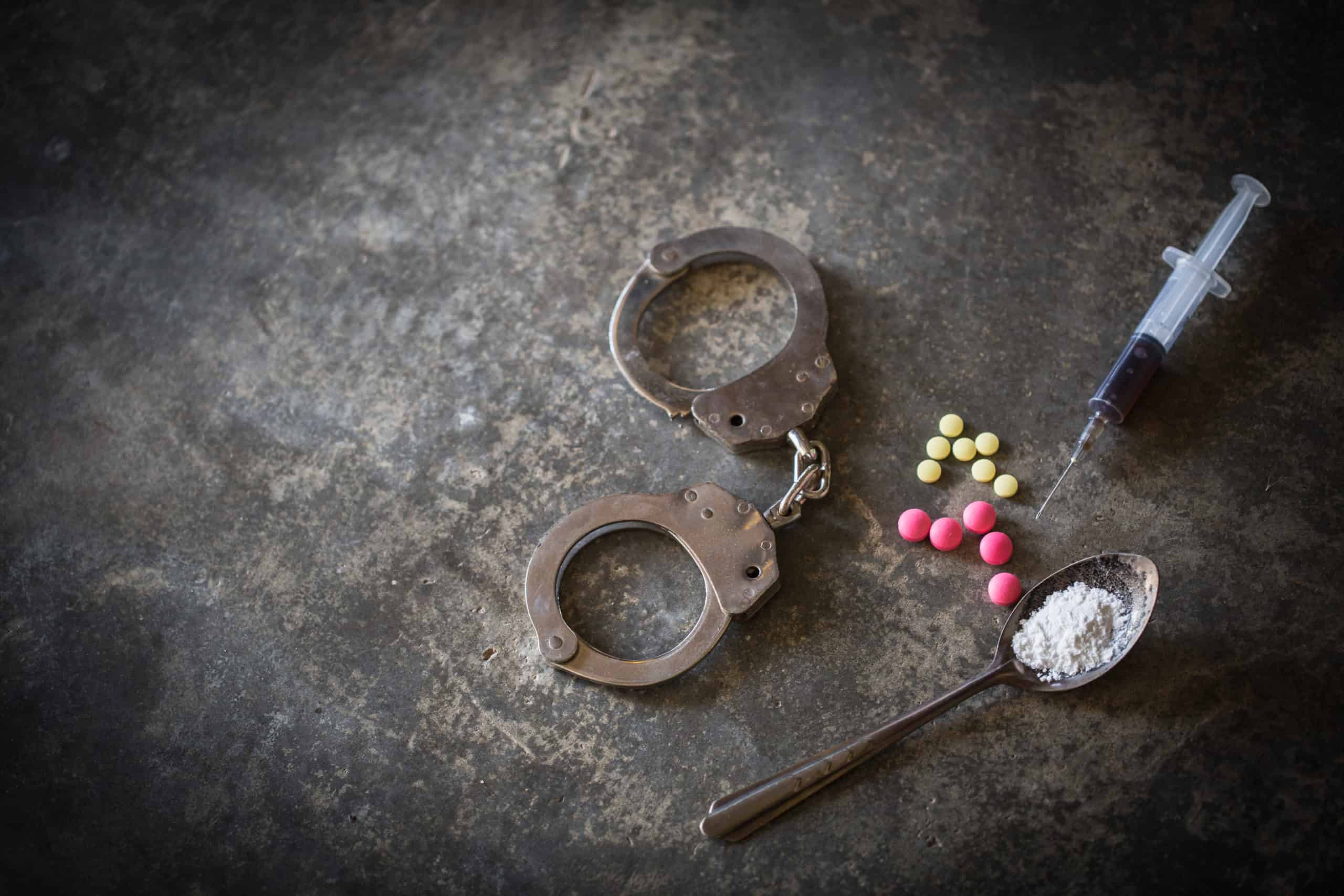
Conviction for drug possession in Texas comes with large fines, a permanent criminal record, and the very real possibility of time behind bars.
Before you make any decisions that might profoundly affect your future, talk to a drug possession lawyer in Grand Prairie to learn what your options are. Electing to plead guilty may seem like the easiest way out, but it can result in a lifetime of trouble.
Attorney Randall Isenberg has more than 30 years’ experience in the justice system. He has prosecuted, sentenced, and defended drug possession clients over those three decades. Consequently, he has a unique understanding of the process and how prosecutors build drug cases.
Contact the Law Offices of Randall B. Isenberg today at 214-696-9253, to learn more or to schedule a free consultation with a Grand Prairie drug possession lawyer.
Will I Go to Jail for Drug Possession in Grand Prairie?
The Texas Controlled Substances Act (TCSA) defines drug possession as intentionally or knowingly possessing a controlled substance. The police and case law generally consider “possessing” to mean having on your person or within your direct control. Prosecutors can also make a case for possession if you have a substance in your home, your vehicle, or your locker.
In Grand Prairie, prosecutors press charges and assess penalties depending on what substance or items you had in your possession at the time of arrest. The least serious charge you could face for possession is a Class C misdemeanor. However, Class C misdemeanor charges apply only to paraphernalia possession.
You can find the detailed penalty structure for possessing drugs or paraphernalia in Grand Prairie in the TCSA. However, the basic penalty structure for each type of charge is as follows:
Misdemeanor Drug Possession Charges
Class C $500 fine, no jail time
Class B $2,000 fine, up to 6 months in jail
Class A $4,000 fine, up to 12 months in jail
Felony Drug Possession Charges
State Jail $10,000 fine, 6 months to 2 years in state jail
Third Degree $10,000 fine, 2 years to 10 years in prison
Second Degree $10,000 fine, 2 years to 20 years in prison
First Degree $10,000 fine, 5 years to life (99 years) in prison
To determine which penalties may apply to your charges, we will consider what substance or materials the police charged you with possessing, any prior convictions you may have, and whether your arrest involved any aggravating circumstances.
The most common aggravating circumstances include possessing drugs in the presence of a child and having a weapon in your possession at the time.
In addition to your fines and potential jail or prison time, you must also pay court fees and costs. The judge may also impose community service and probation. Your conviction will appear on your permanent record as well. This can allow potential employers and landlords to decline your application. It can prevent you from getting student loans or getting into many good schools.
You may also lose your driver’s license upon conviction for a drug or paraphernalia possession charge in Grand Prairie.
If you face felony charges, you will lose your right to vote, sit on a jury, and to own or carry a firearm. You will even lose the ability to hold a Texas hunting or fishing license.
How Can a Drug Possession Lawyer in Grand Prairie Help Me?
Regardless of whether the prosecutor has already filed charges or has only opened an investigation into your case, you should speak to a criminal defense attorney who understands the serious nature of drug possession convictions.
The police and prosecutor may try to convince you to plead guilty to the charges, telling you that you may avoid jail time and save yourself the embarrassment of a trial. However, you must realize that they have no vested interest in your future.
Your lawyer will, however, have your well-being exclusively in mind while representing you on these charges. Your lawyer will protect your legal rights throughout the process and ensure you always understand the potential risks and rewards of every possible option.
By evaluating the evidence in your case, a drug possession lawyer can spot potential violations of your rights during your arrest as well as any other weaknesses in the prosecution’s case. Using this information, we can go to the prosecutor and argue for a reduced charge or an alternative such as a diversion program or drug court.
Ultimately, if the prosecutor will not consider reducing your charges, we will prepare your case for court. Because the burden of proof is on the prosecutor, we will fight to present all the relevant evidence to inject reasonable doubt into the judge or jury’s perception.
In Texas, the police and the courts take drug possession very seriously, and often pursue conviction no matter how weak your case may be. Having a drug possession lawyer onboard can help you fight for the best possible outcome in your case.
Which Drugs Carry Which Penalties?
You can review the statutes to learn more about all the illegal drugs and substances and their penalties.
However, generally, Penalty Group 1 contains opiates and opiate derivatives like heroin, morphine, and codeine. Penalty Group 1A contains LSD.
Penalty Group 2 contains hallucinogens, including PCP, ecstasy, and MDMA. Penalty Group 2A contains only manmade compounds of synthetic chemicals that mimic the effects of marijuana.
In Penalty Group 3, you will find compounds of stimulants, depressants, or narcotics, including drugs such as morphine, Xanax, and barbiturates.
Finally, Penalty Group 4 contains illegal possession of those substances used legitimately in the medical field, including opium, codeine, morphine, and buprenorphine.
As you may have noted, this overview does not acknowledge marijuana. The TCSA groups it separately. For possession of less than two ounces, the prosecutor will likely charge you with a Class B misdemeanor, as long as you have no prior convictions and no aggravating circumstances — which still means a $2,000 fine and up to six months in jail.
Does It Cost to Talk to a Drug Possession Lawyer in Grand Prairie?
If you can talk to a drug possession lawyer at no cost, you have no reason not to take advantage of this invaluable — and free — assistance, especially when facing these serious charges.
The Law Offices of Randall B. Isenberg offers potential clients a free, no-obligation consultation with a knowledgeable drug possession lawyer in Grand Prairie. Call us today at 214-696-9253 to schedule yours.










